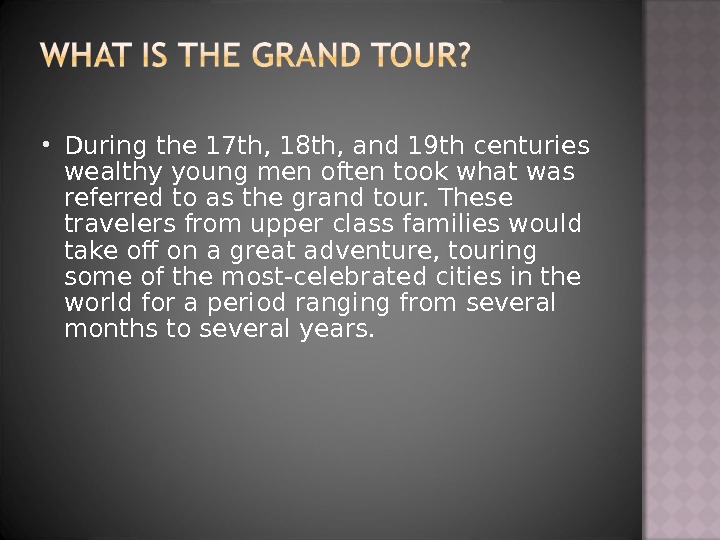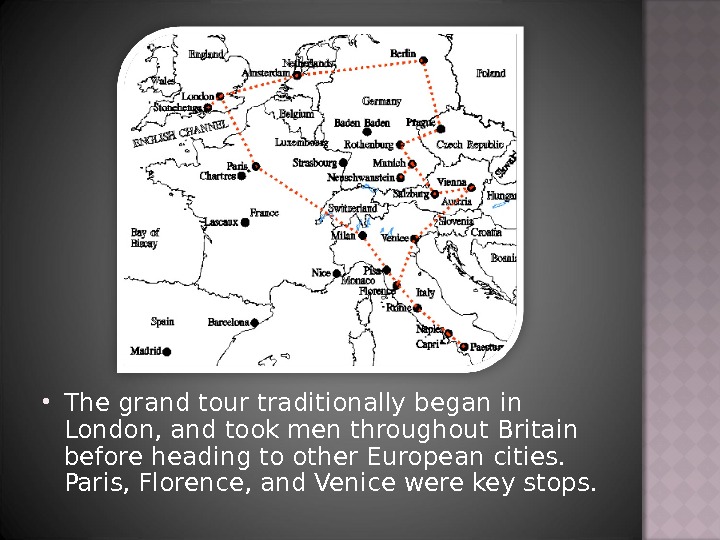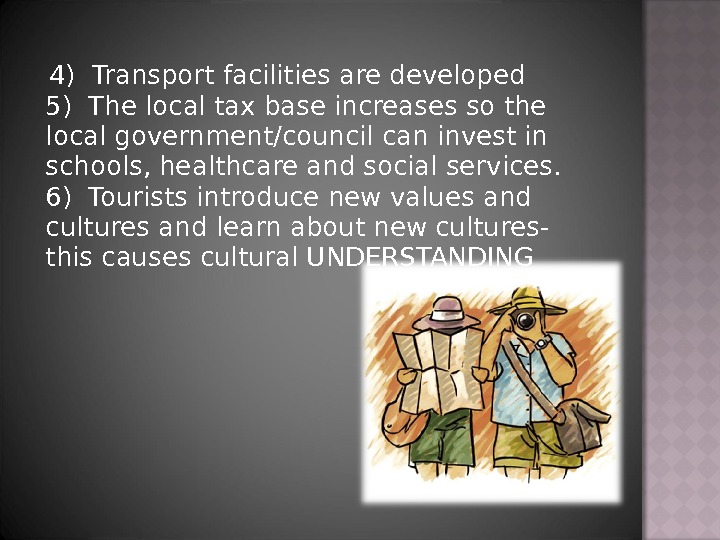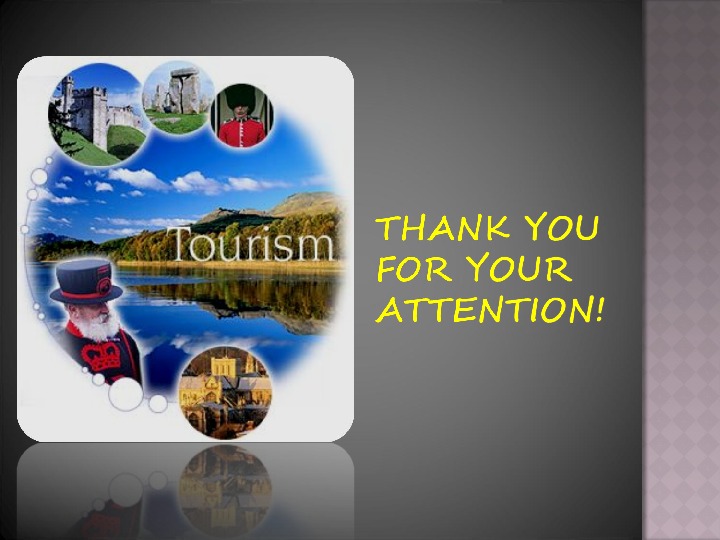Made by: Stasia Kovtunenko Takhmina Saydalieva











- Размер: 5.2 Mегабайта
- Количество слайдов: 10
Описание презентации Made by: Stasia Kovtunenko Takhmina Saydalieva по слайдам
 Made by: Stasia Kovtunenko Takhmina Saydalieva
Made by: Stasia Kovtunenko Takhmina Saydalieva
 During the 17 th, 18 th, and 19 th centuries wealthy young men often took what was referred to as thegrandtour. These travelers from upper class families would take off on a great adventure, touring some of the most-celebrated cities in the world for a period ranging from several months to several years.
During the 17 th, 18 th, and 19 th centuries wealthy young men often took what was referred to as thegrandtour. These travelers from upper class families would take off on a great adventure, touring some of the most-celebrated cities in the world for a period ranging from several months to several years.
 Thegrandtourtraditionally began in London, and took men throughout Britain before heading to other European cities. Paris, Florence, and Venice were key stops.
Thegrandtourtraditionally began in London, and took men throughout Britain before heading to other European cities. Paris, Florence, and Venice were key stops.
 Many men who took agrandtour kept a journal, which they could then publish once they returned home.
Many men who took agrandtour kept a journal, which they could then publish once they returned home.

 Mass tourism is a form of tourism that involves tens of thousands of people going to the same resort often at the same time of year. It is the most popular form of tourism as it is often the cheapest way to holiday.
Mass tourism is a form of tourism that involves tens of thousands of people going to the same resort often at the same time of year. It is the most popular form of tourism as it is often the cheapest way to holiday.
 1) Jobs are generated by tourism in many areas — in the initial construction of the resorts, in travel, in food provision and in other service related industries. 2) Local people benefit directly from employment 3) Roads, rail, facilities, electricity services etc. all need improving to accommodate the tourists — local people also benefit from these INFRASTRUCTURE developments.
1) Jobs are generated by tourism in many areas — in the initial construction of the resorts, in travel, in food provision and in other service related industries. 2) Local people benefit directly from employment 3) Roads, rail, facilities, electricity services etc. all need improving to accommodate the tourists — local people also benefit from these INFRASTRUCTURE developments.
 4) Transport facilities are developed 5) The local tax base increases so the local government/council can invest in schools, healthcare and social services. 6) Tourists introduce new values and cultures and learn about new cultures- this causes cultural UNDERSTANDING
4) Transport facilities are developed 5) The local tax base increases so the local government/council can invest in schools, healthcare and social services. 6) Tourists introduce new values and cultures and learn about new cultures- this causes cultural UNDERSTANDING
 1) TNCs (Trans National Corporations) from rich countries are often involved — this can result in a lot of profits leaving the country. 2) Jobs can be seasonal — especially in beach and skiing based resorts. People can therefore find themselves out of work in the close season. 3) Tourists consume huge amounts of resources including food and water — this type of tourism is particularly UNSUSTAINABLE in this manner. 4) Tourists introduce new values and cultures — this causes cultural pollution. 5) Land is lost from farming to tourist developments.
1) TNCs (Trans National Corporations) from rich countries are often involved — this can result in a lot of profits leaving the country. 2) Jobs can be seasonal — especially in beach and skiing based resorts. People can therefore find themselves out of work in the close season. 3) Tourists consume huge amounts of resources including food and water — this type of tourism is particularly UNSUSTAINABLE in this manner. 4) Tourists introduce new values and cultures — this causes cultural pollution. 5) Land is lost from farming to tourist developments.


